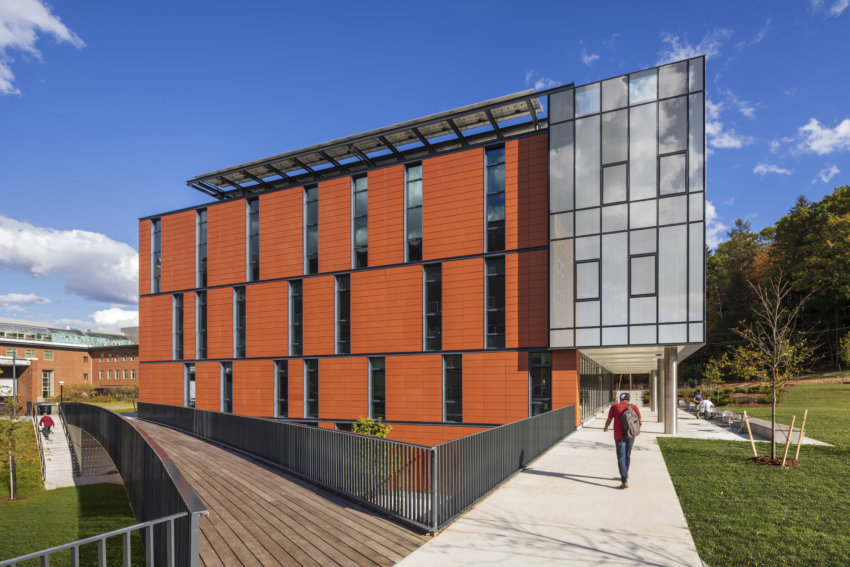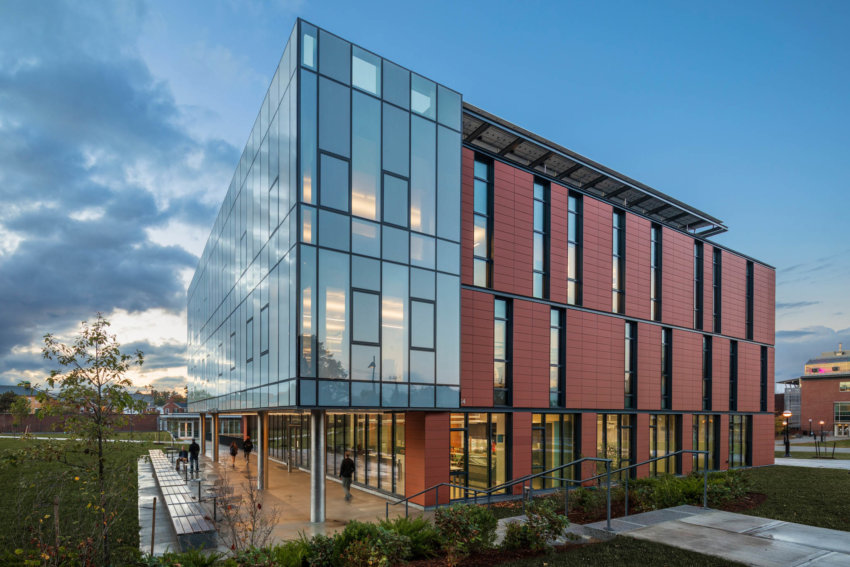At Anonymous Hall, a newly renovated social and administrative hub on campus, students and faculty are able to enjoy a small café, student lounge, seminar space, computer lab, three conference rooms, and 32 new offices in what was formerly the college’s biomedical library. Anonymous Hall is named for alumni and friends who have quietly supported Dartmouth over the years and is a visually striking display of the school’s sustainable philosophy.
With the renovation to Anonymous Hall, Dartmouth College wanted a building that demonstrated the college’s commitment to sustainability. The existing reinforced concrete frame was re-used, while an addition was added, and the exterior of the building was updated with a new curtain wall as well as terra cotta and metal panels. By exposing the existing steel and concrete frame, 20,000 cubic feet of concrete was salvaged and over 1,200 metric tons of carbon was saved from the concrete alone. The façade was not thermally efficient and was removed to allow for a highly efficient lightweight envelope system that combined multiple advanced technologies such as vacuum insulated panels, triple glazing, metal mesh integral shading, and structural glazing.

The lightweight, thin-tiled terra-cotta panels on the north, east, and west sides of the building were mounted to the structure with a thermally improved deep-cavity aluminum rail system. The panels, manufactured and shipped from China, had a 20-week lead time during construction, so field dimensions had to be exact – there was no room in the schedule or budget for re-work. This risk was intensified by the inconsistent, unsquare frame of the existing building. Windover utilized drone mapping and laser scanning to model the conditions of the existing building so the inconsistencies could be compensated for by structural and miscellaneous metal components. This data was captured early in construction and allowed Windover to ensure consistent planes were established ahead of the arrival of the terra cotta.

The curtain wall system, imported from Germany, includes operable panels that are controlled to provide optimally efficient ventilation that is modulated according to occupancy. The system also included integral metal mesh shading and triple glazing. The system has a U-value of 0.17, which is slightly more than four times as efficient as the latest energy code requirement.
Boasting nearly net-zero energy performance, Anonymous Hall is not only a visually striking element of the Dartmouth campus but also embodies the College’s dedication to sustainability.
